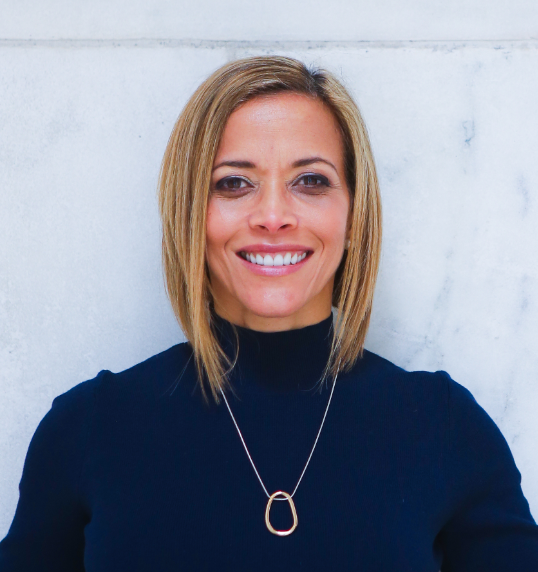Women remain underrepresented at every level in the corporate pipeline. The “leaky management pipeline” shows how in corporate America women fall behind early and keep losing ground with every step, and the challenges are even greater for women and men of color.
So, while change slowly occurs at the macro level in the business environment from a gender representation perspective, let’s direct our attention to what each of us can do at the micro level to positively influence change.
Why Is This Important?
I believe that as individuals and leaders we play an integral part tackling the problem and identifying solutions.
Starting my own business has been one of the most challenging endeavors to date, and I’ve had a few of them; from emigrating to the U.S. at the age of 14, learning English, graduating from college and grad school multiple times, earning a PhD in information systems, ascending through the ranks in male dominated financial services and technology industries, raising a son and running a household while working full-time and commuting 3+ hours a day, and the list goes on…
Throughout, how did I stay positive believing that “the best is yet to come?” I stayed focused on my vision, worked hard, and relied on a support system of family, friends, colleagues, mentors, sponsors, and coaches who encouraged and guided me along the way.
My mission today is to help individuals and organizations that want to support talented professionals at all levels of management to develop as leaders in business and in life.
Both women and men face many challenges in today’s business world. Unconscious biases are part of those challenges which we as corporations and individuals must tackle.
The following piece is an excerpt from my #1 bestselling book released October 2017, Fearless Women at Work: Five Powerful Strategies to Thrive in Your Career and Life!
What Does Unconscious Bias Look Like?
Over recent years, comprehensive studies by LeanIn.org and McKinsey & Company shed light on the reasons why women are making slow progress in the workplace. Among the reasons you find unconscious biases.
Unconscious biases refer to the way you think about work, the way you think about how people perform in their jobs, the way you think about who you hire and promote—all of these are prone to biases.
These are not gender specific; both men and women have these biases.
One of the key points McKinsey makes is that there’s no HR policy in the world that can solve this problem of unconscious bias, and it’s important that you hold up a mirror and see what direction those biases are driving you toward.
In the examination of differences in gender perceptions, when Sheryl Sandberg shared with us in her book, Lean In, the 2003 experiment conducted by Columbia Business School professor Frank Flynn and New York University Professor Cameron Anderson about “Heidi and Howard,” it was eye-opening for me.
Briefly, in the experiment, half of the students were presented with a story of a real-life successful entrepreneur, Heidi [Roizen], and the other half were presented with the same story except the name was changed to Howard. While all students rated both to be competent, Howard was favored over Heidi, who was perceived as selfish and “not the type of person you would want to hire or work for.”
Holding Up The
Mirror

I share the study of “Heidi and Howard” with you here for one reason.
What are some of your own personal, unconscious biases, specifically gender ones?
As a leader, pay attention to your behavior and take measures to put in place checks and balances that may identify when biases are at play in your organization.
For example:
- When you evaluate the
performance of one of your employees, are being assertive and direct on
your list of qualities for a male employee but not for a female
employee?
- If you have an open position
on your team, are you interviewing both male and female candidates across
a spectrum of backgrounds as long as they are qualified, or are you giving
preference to a specific group or gender?
- Similarly, the way you think
about whom you are promoting. Are you only considering those people
who you believe can be available 24/7 and dismissing someone—likely a
woman—whom you perceive may be less available?
- Do you have a mind-set about
which roles are better performed by men or women?
- Do you have an affinity to
work for men rather than women?
- Do you tend to belief that
outspoken, confident women are obnoxious or off-putting, yet men who do
the same are not?
- In other words, are you
giving different meanings to the same behavior based on the person’s
gender or background?
Unconscious Biases In a Nutshell

These are examples to consider as you investigate your own unconscious biases and begin to question potential biases in your organization. For example, some companies are using a “blind” resume review method where names are not listed to create a less biased interviewing process.
It’s time to get creative. Forget “think outside the box” and let’s get rid of “the box” altogether.
Let’s begin to explore innovative ideas to tap into all the talent that’s out there.
In the meantime…
Be fearless! (act despite the fear)
Dr. Ginny A. Baro is a Fortune 100 executive coach for talented professionals at all levels of management, speaker, and #1 bestselling author of Fearless Women at Work. For more of her work, join her community to receive valuable strategies delivered to your inbox and access today Chapter 11 of her #1 bestselling book to learn how to tap into your unique leadership style, career and life ambition, earning power, and more! Read other articles from her blog, get a copy of her new book, and join her courageous conversations on GCA Studios. Follow her on Facebook, Twitter, and Instagram.
Originally published at https://www.fearlesswomenatwork.com/single-post/2017/12/06/How-to-Identify-Your-Own-Unconscious-Biases-for-The-Better

